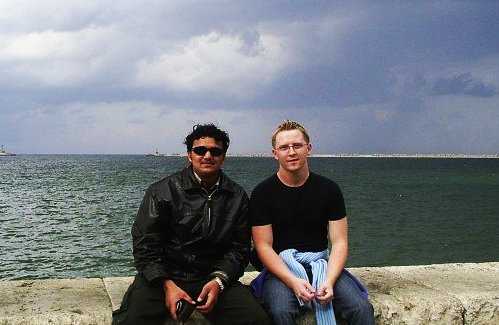Arabic and Hebrew: Why Semitic Languages Are Not Difficult
 Written byHubert Nagel
Written byHubert Nagel- Read time11 mins
- Comments99

Note: If you’re learning Arabic, we’ve just created an amazing new resource for learning spoken dialects. Click here to check it out.
I’ve also shared the best available resources for learning various dialects here and here as well as the awesome audio content in Rocket Arabic (see my review here) for spoken Egyptian.
I read a lot of comments on forums and other blogs, and have received emails from people asking questions about the difficulty of Semitic languages like Arabic and Hebrew (Arabic mainly).
Fear-mongering novice learners try to frighten other would-be learners by describing Arabic as extraordinarily difficult, and the Foreign Service Institute places it in its fifth and most difficult category, with Hebrew and Amharic in its fourth.
As far as I’m concerned, the FSI’s placement of Arabic and Hebrew in those categories is absurd.
I’d also like to know how the hell Amharic (the Semitic language of Ethiopia with the much more challenging Ge’ez script and more unfamiliar culture to English speakers) is easier than Arabic.
If you’re an Amharic speaker/learner I’d like to hear your response to that question in the comments section below.
I admit that Amharic’s a language I haven’t studied yet, but after years of Arabic and Hebrew (and some Aramaic in college) I can confidently say that of all the languages that I’ve learned or dabbled in over the years, Semitic languages really are some of the least intimidating to learn.
I’ll briefly mention some, but not all, of my reasons below (with particular attention paid to Arabic and Hebrew).
One more thing: in case you’re looking for an online resource to learn Arabic or Hebrew, these are the best available in terms of quality:
ArabicPod101 for Egyptian, Moroccan and Modern Standard Arabic. I wrote a review about it here.
HebrewPod101 for learning spoken Hebrew. It has the same lesson style as ArabicPod101 (podcast style + video). Read my HebrewPod101 review.
Rapid Arabic for Modern Standard Arabic. This is a very unique downloadable audio set that teaches you Arabic through catchy, repetitive music (based on scientific research into ‘stuck song syndrome’ and memory).
Rocket Arabic for Egyptian Arabic (comprehensive). I reviewed its content here.
And TalkInArabic.com which (at the moment) covers 8 dialects of Arabic (also see our Essential Arabic Verb Packs).
Nerd, businessman or vagabond?
Before you do anything, it’s really important that you work out what your goals are for a language like Arabic or Hebrew.
This is true for all languages but for these in particular it depends on whether you want to learn the classical variety of Hebrew or Arabic for academic or religious reasons (e.g. Judeo-Christian/Islamic theological studies), a standard dialect to engage in business or to monitor current affairs (Israel/Palestine, terrorism, etc.) or a colloquial language for travel to engage and form relationships with local people.
With Arabic in particular the most common question asked by people is:
Should I learn Modern Standard Arabic or a dialect?
The only person who can answer that question is the one who asks it.
If you want to be able to converse in the language then pick a dialect (preferably the dialect of the region you’re planning to travel to) or a widely understood one like Egyptian. I’ve already mentioned the best series ever made for the Egyptian dialect, but there are plenty of others for other dialects whether you choose one like Moroccan or Iraqi (unfortunately dialects like Sudanese and Tunisian have fewer resources but I’d recommend starting with Egyptian if you’re interested in them anyway).
If you’re studying language for religious or academic purposes, then you’d benefit from a coursebook in Classical Arabic (or Biblical Hebrew) which are much more detailed about grammar, old vocabulary and exegesis.
Otherwise, the majority of resources available for Arabic are for Modern Standard Arabic (one of my favourite being this one) and from what I understand all Modern Hebrew resources are for Standard Hebrew as there are no major dialect distinctions in Israel comparable to those in the Arabic-speaking world.
Triliteral roots
Okay, so what makes them easier than people make them out to be?
First and foremost: roots.
Roots exist in all languages but one of the defining characteristics of Semitic languages is that most of their vocabulary comes from three-letter stems of radical consonants (there are a handful of four and two-letter stems too but most have three).
For example, in both Arabic and Hebrew, from the root K-T-B (